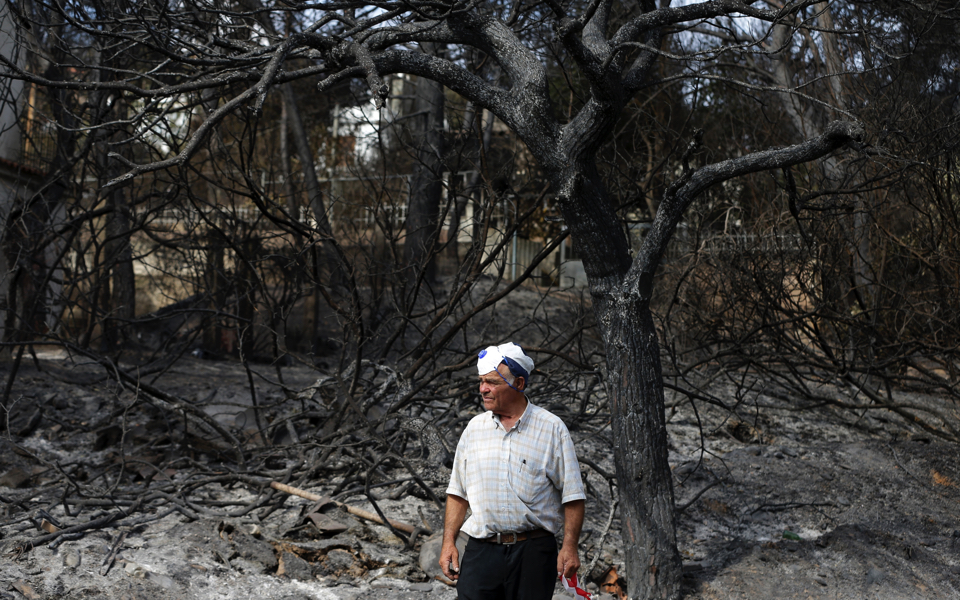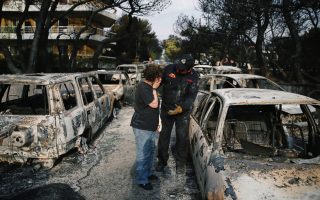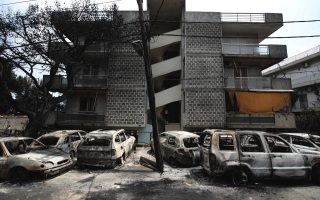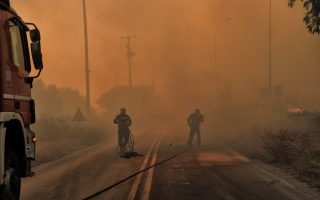Chronic problems, responsibilities and resignations

Yes, there is blame to be apportioned. Even in a biblical disaster, when nature is at its most extreme, mistakes will be made and shortcomings and negligence will be identified.
The problems are chronic and have been discussed thousands of times. Yesterday we had the floods in Maroussi and on Monday it was the fire in Mati. Last November there were the floods in Mandra, and going back further in the past we can point to the natural disasters on Mount Parnitha and in Ilia.
After each disaster we note the problems and analyze them. So far, the opposition’s reaction has been sober and measured. But soon we will hear noises about Prime Minister Alexis Tsipras’s responsibilities, as we did in 2007 about then prime minister Costas Karamanlis’s responsibilities for the wildfires in Ilia. And it is certain that today’s government will level similar accusations against Kyriakos Mitsotakis if he becomes prime minister and something similar happens. They did in 2007.
But since all of Greece is built arbitrarily, entire towns are bound to be at the mercy of any extreme weather phenomenon. Congested streams, homes and factories built without permits, even municipal buildings. This is the Greek reality. Lawlessness is not exclusive to one political party. Clientelism is alive and well.
So, what do we do? The first step should be evident. Any burned forestland should never be built on – it should be reforested. Everybody agrees on that but “something” always happens and after a while homes spring up on burned land – sometimes even villas with pools. Is it the policeman, the city planner, or the mayor to blame? Certainly someone is at fault. Yes, there are responsibilities.
What else has to happen, how many more people have to lose their lives, before we sit down and draw up long-term plans together and, above all, agree to implement them consistently and continuously?
Instead of screaming and denouncing each other, politicians would better honor the memory of the dead if they committed to start doing what should have been done decades ago.
But in addition to chronic problems, it is clear that mistakes have also been made in managing the disaster. Experts highlight the need for preventive planning, including the use of appropriate materials, as well as making use of the right people.
As Costas Synolakis, professor of natural hazards at the Technical University of Crete’s School of Environmental Engineering, wrote in a commentary for Kathimerini, the outcome of a fire always depends on the initial intervention, as civil protection authorities must predict the course of the blaze and, based on this prediction, deploy the necessary resources. If we wait for the wind to change direction, it is already too late.
French firefighters say that “you can put out a fire with a glass of water in the first minute, a bucket in the second and an entire water tank in the third. After that it’s a matter of luck.”
The chronic problems are well-known. But it is clear that last Monday things were certainly not managed perfectly. Somebody has to take responsibility. This is what happens in well-governed democracies. There must be resignations, even out of a sense of personal responsibility.





